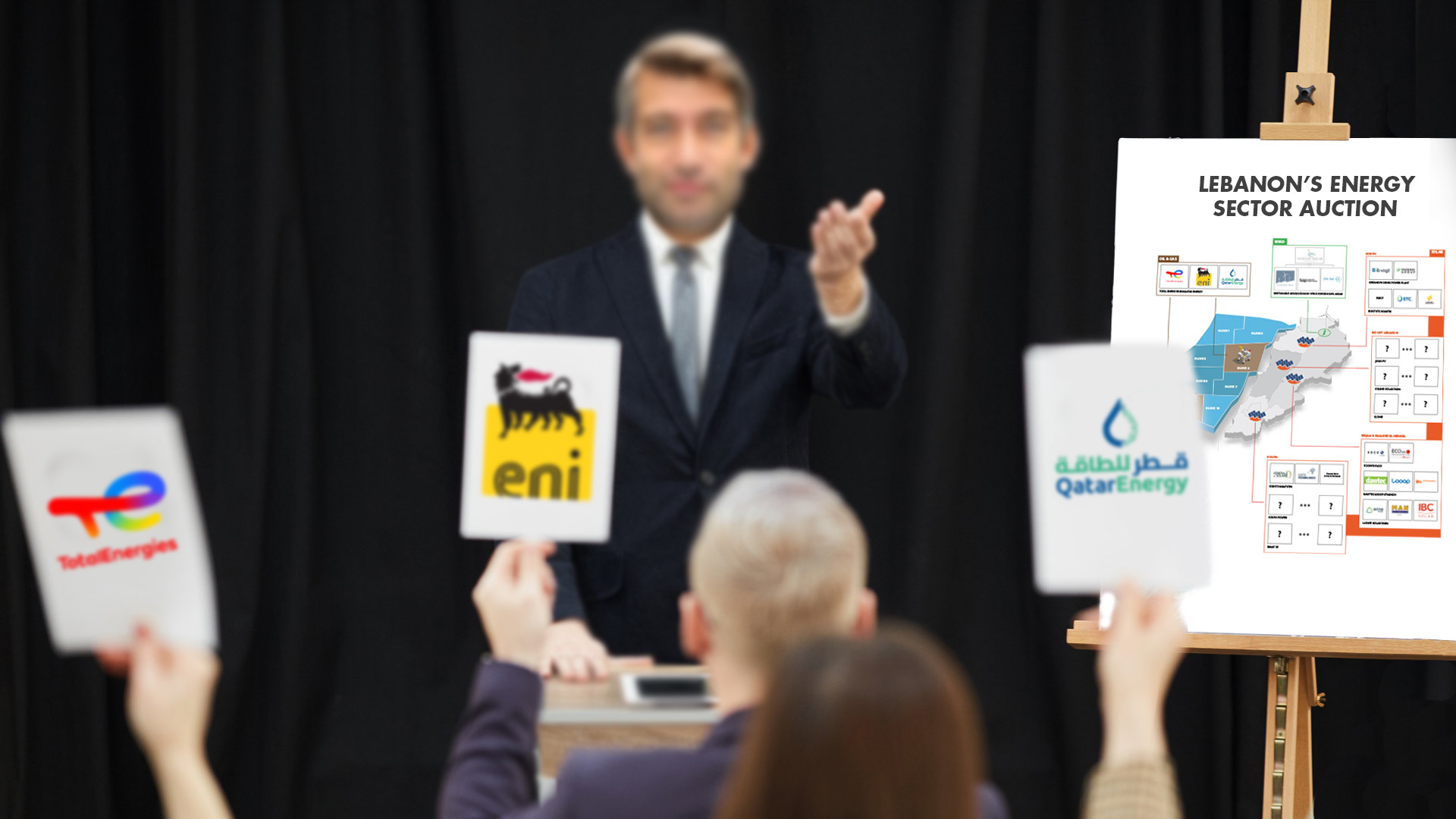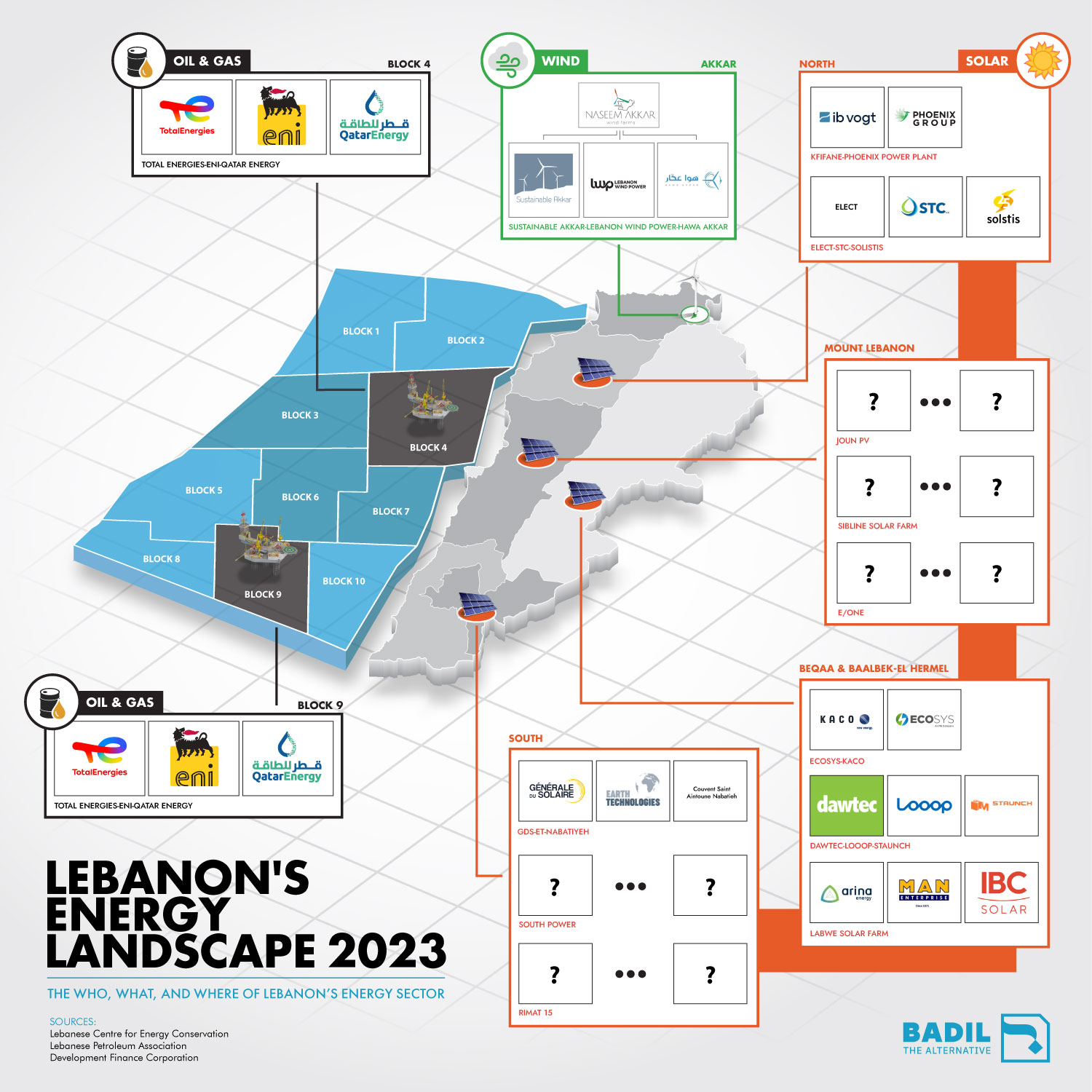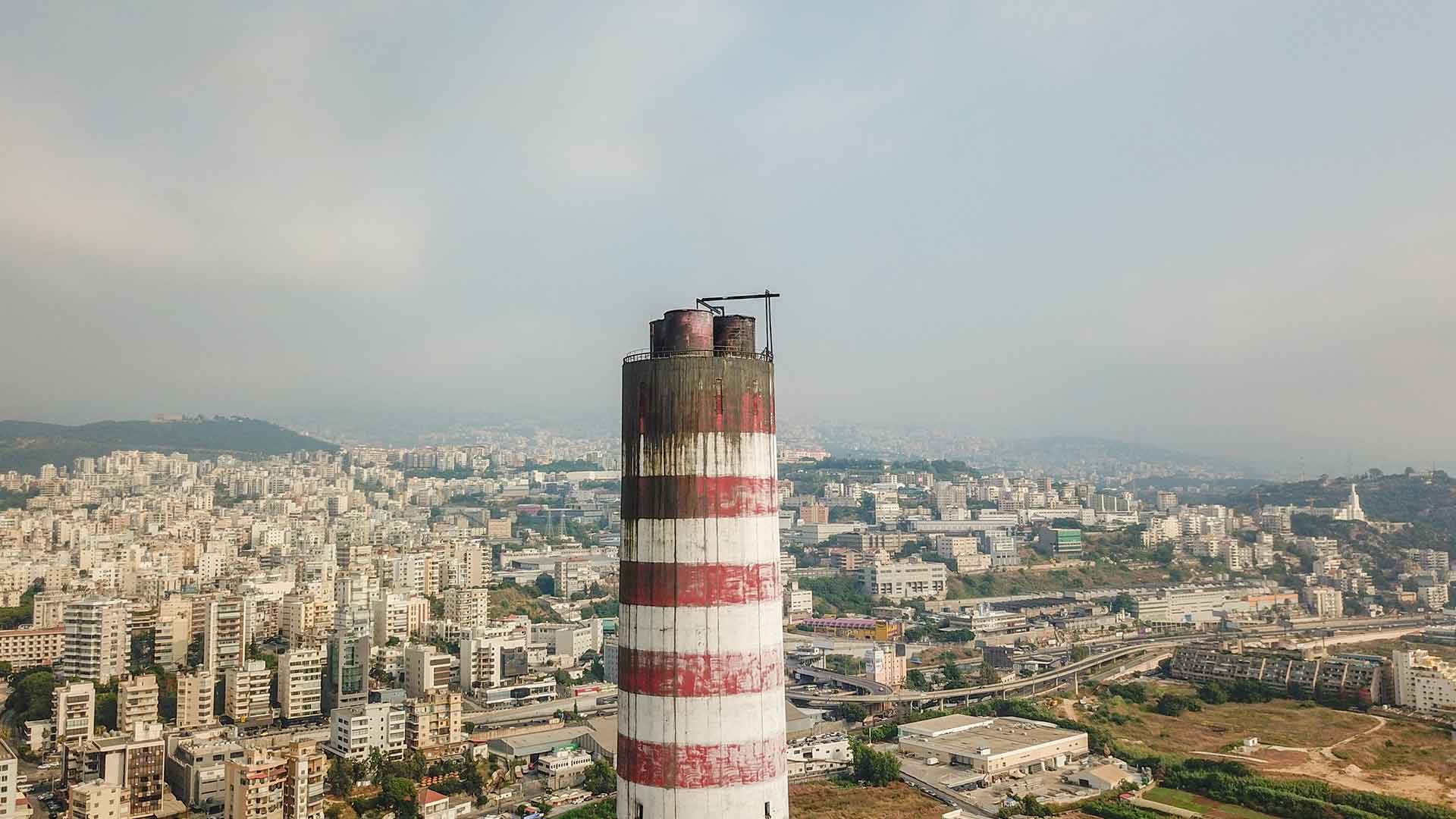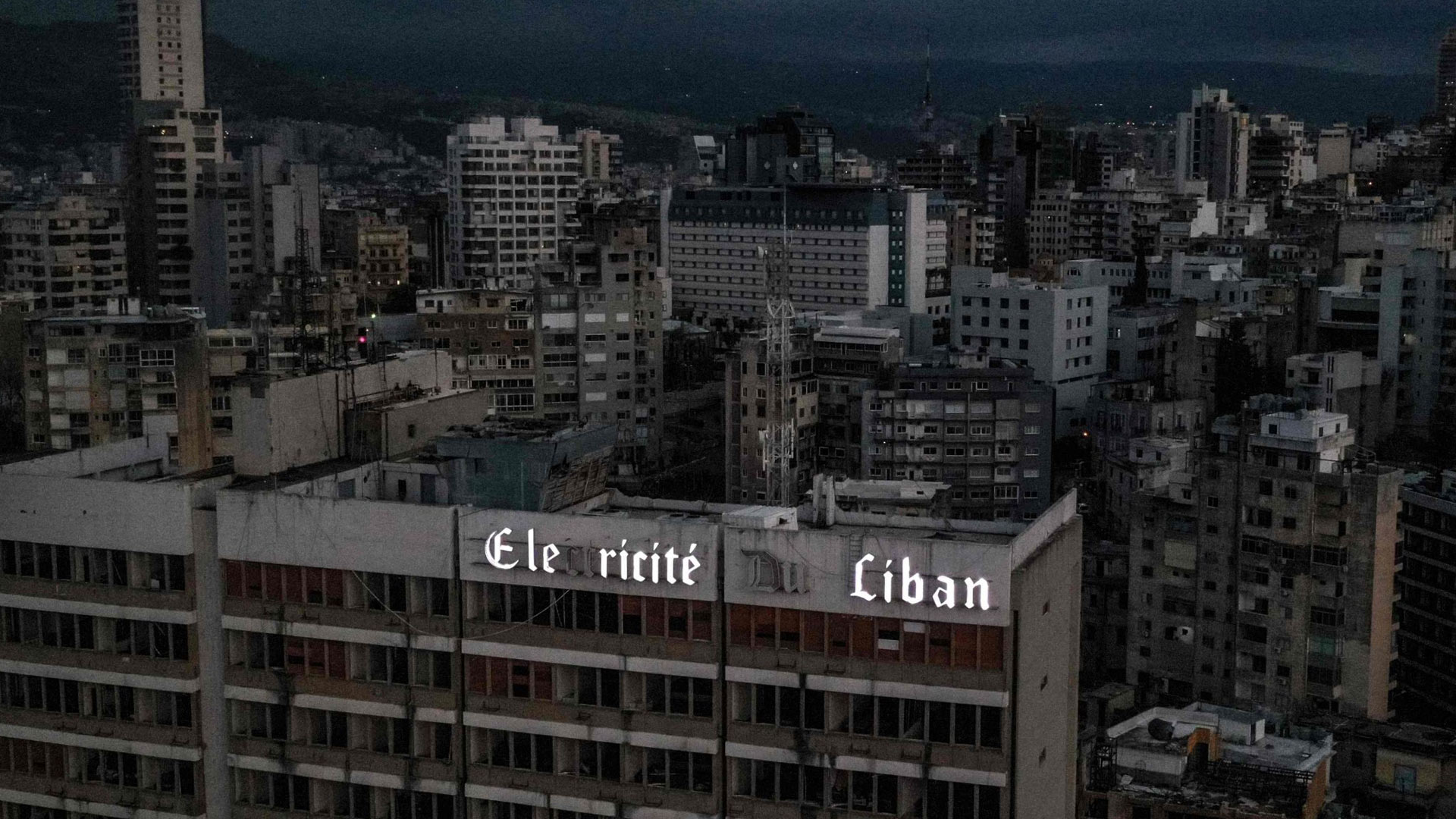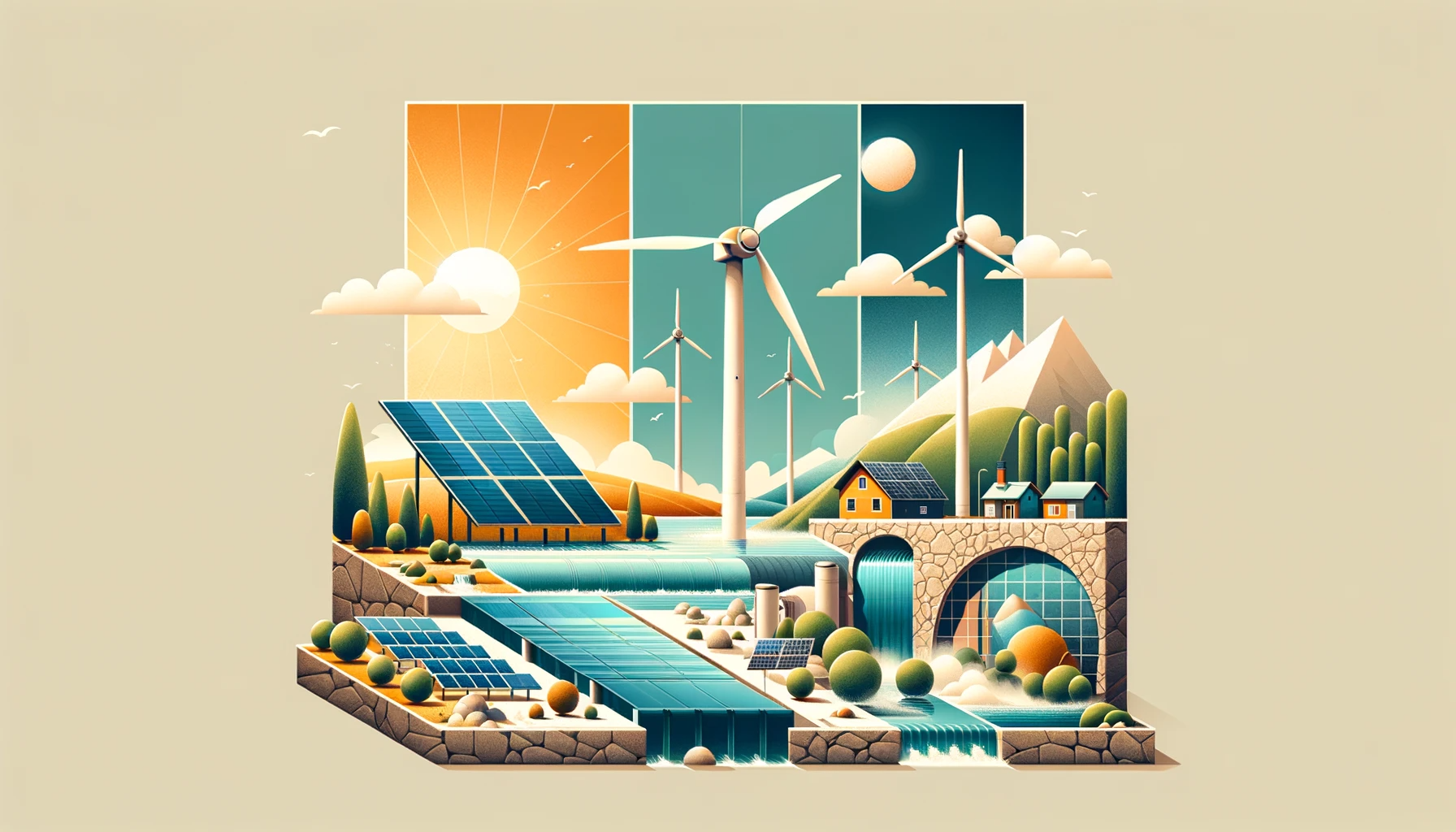Six years later and all these projects still exist only on paper. The outbreak of the financial crisis in 2019 made funding opportunities scarce for local companies. Meanwhile, for international firms Lebanon was seemingly an investment blackhole.
Under heavy public scrutiny, it is no surprise then that the Caretaker Minister of Energy and Water, Walid Fayyad, ensured a publicised ceremony for his attempt to revive the ministry’s renewable energy endeavours in May 2023. The event involved the signature of contracts with a consortium of companies to construct 11 of the 12 previously planned solar plants, after one successful consortium dropped out of the project due to a lack of funding. The winning companies were given one year to find funding or face losing their hard-won contracts. Less three months later and several have already thrown in the towel.
“I think it’s a waste of time. Unless there is a bankable up-taker, no one from abroad will finance,” said Elie Maalouf, Operations Manager at the Lebanese solar PV firm, EcoSys, to The Alternative. EcoSys is part of a consortium that won one of the three, highly sought-after contracts for the Bekaa Valley.
A key issue preventing the success of the projects is the condition, established in Decree No. 16878/1964 and related decrees, that EdL retains a monopoly over the purchase of electricity produced by independent power producers (IPPs). The ministry’s renewable energy PPAs settled on a resale price for electricity generated by the solar PV projects of 5.7 US cents per kilowatt hour (USc/kWh) in the Bekaa and 6.27 USc/kWh in the further three regions. Electricity generated at the Akkar wind projects would be sold back to EdL at 9.60 USc/kWh.
“EdL is not capable of paying anyone anything,” said Camillo Stubenberg, an expert on Lebanon’s energy infrastructure at Cornell University. Indeed, most recently, the Caretaker Minister of Energy and Water, Walid Fayyad, secured yet another treasury advance of US$116 million to keep EdL above water in January 2023.
Silver Linings
Amid this bleak outlook for the development of renewable energy in Lebanon, fossil fuels have undergone a revival. The European oil titans TotalEnergies and Eni greenlighted plans for oil and gas exploration off the Lebanese coast following a historic Lebanese-Israeli deal struck in October 2022. QatarEnergy later announced it would join the project, with a marginally smaller 30 per cent stake. The following year, Fayyad publicly expressed that Qatar was also “interested” in investing in Lebanon’s solar energy landscape after a visit by the Qatari Minister of Energy, Saad bin Sherida Al Kaabi, in early-July 2023.
TotalEnergies and QatarEnergy are now in advanced discussions to purchase two to three of the PPAs from the winning solar companies unable to find investment. Meanwhile, TotalEnergies is also in contact with the current contract owners to purchase the PPAs for the Akkar wind projects. This was confirmed through interviews conducted with government actors, including the caretaker minister of energy and water, Lebanon energy experts, and a manager at one of the solar PV companies that currently holds a PPA licence for a solar plant in the Bekaa Valley.
Each of the solar plants is expected to cost between US$8 million to US$15 million, according to Marc Ayoub, an energy expert at the Issam Fares Institute at the American University of Beirut. For local and international solar companies, finding funding of this size for a high-risk investment environment such as Lebanon, is particularly difficult.
“The good thing that happened for license holders is not that you are going to be able to find the necessary funds for these projects, but that you now have a project that you can sell,” said Stubenberg.
This is particularly pertinent in the case of the Akkar wind projects. The largest shareholder in the holding company with a controlling stake in the three license holders – Sustainable Akkar, Hawa Akkar, and Lebanon Wind Power – is the billionaire-businessman Alaa Khawaja. The sunken costs of the projects, including land acquisition, site development, and turbine procurement and transportation, will be around US$350 million, according to El Khoury. However, the original developers may be able to sell on their projects at a profit, said Rony Karam, President of the Lebanese Foundation of Renewable Energy.
The price of these renewable projects is a drop in the ocean for international oil companies, as identified by the LCEC President, Pierre El Khoury, in an interview with The Alternative. TotalEnergies is worth US$149 billion, as of July 2023. Meanwhile, the state-owned enterprise QatarEnergy, unlisted on the stock market, reported a US$42 billion profit for 2022.
As a consequence, it is likely that the purchase of a handful of solar PV project licenses will later extend to include the remaining contracts, said Ayoub.
Concerns regarding payment from EdL are minimal for multinational firms such as TotalEnergies and QatarEnergy. This is because these companies are already required to pay the Lebanese government if their oil and gas projects off the Lebanese coast prove to be profitable, according to Stubenberg.
“Their motivation now is greenwashing. But we need any help we can get,” said Karam about the interest of Big Oil in Lebanon’s renewables.
Investment in clean energy projects, alongside concurrent fossil fuel extraction, is valuable symbolic capital in the global energy sector today. It reflects a wider trend whereby companies showcase their “new energy” bona fides whilst also accessing lucrative oil and gas opportunities, according to Dr Karen E. Young, a Gulf region energy expert at Columbia University.
It is no coincidence that the same fossil fuel giants are showing interest in ‘fragile’ states. Only this July, TotalEnergies also inked a US$27 billion deal with the Iraqi state to expand oil, gas, and renewable energy production through projects across the country. QatarEnergy claimed a 25 per cent stake in the deal.
Controlling a country’s power production is a powerful — and durable — political tool, as Young identified. These companies may be able to act as alternatives to development finance agencies, such as The World Bank, who this year stipulated various requirements for the Lebanese government to access their funding support, namely to revamp the country’s electricity sector. These included establishing an electricity regulator and conducting a forensic audit of EdL. Both requirements are still pending, and the deal is looking increasingly unlikely.
In Lebanon’s case, the licences for wind and solar PV projects, and the ability to sell electricity back to EdL in a PPA, extend for 20 and 25 years respectively. This means both Qatar and France will be central actors in the development of Lebanon’s fossil fuel, solar, and wind energy sources for the next quarter of a century.
Absence of oversight
“I don’t think it’s TotalEnergies whose pushing for the projects. I think it’s the Ministry,” said Maalouf. Indeed, the hallmark of the MoEW’s renewable energy efforts could hit another serious roadblock with consortiums unable to find the necessary funding for these projects.
Lebanon’s Minister of Energy publicly stated that “we will try to resolve the gaps in funding [for the solar projects]” in 2021. The repurchase of renewable energy PPAs, however, offers a win-win solution for the MoEW. Nevertheless, under the current circumstances, independent oversight is alarmingly absent from the sale.
The Lebanese Petroleum Association (LPA) is tasked with overseeing private sector involvement in Lebanon’s fossil fuel sector. Not only does the LPA sit under the MoEW, but the political-sectarian-based appointments to its fractious board have led to concerns regarding the extent of its expertise and independence.
Meanwhile, the LCEC is currently the leading expert body consulted by the MoEW on all renewable energy-related matters. It acts as the self-professed “technical arm” of the Ministry, a position carved out by the entity itself and not in law, said Ayoub.
In 2011, the LCEC was established as a not-for-profit organisation by the United Nations Development Programme (UNDP). The entity survived beyond the severing of UNDP funding in 2013 due to the MoEW’s decision to keep it on in an advisory capacity. It is, however, without a formal legislative mandate to clarify its authority, funding, or position vis-a-vis other renewable energy organisations in Lebanon.
“They are playing in the playground of the Ministry, within what they are [informally] mandated,” said Ayoub.
All the while, twenty years after its first reference in Law 462/2002, an electricity regulator remains non-existent in Lebanon. Theoretically, the entity should set electricity tariffs and oversee privatisation in Lebanon’s electricity sector. In its absence, however, both such tasks are now under the remit of the MoEW following a series of legislative measures.
“In the current framework, having a regulator is useless”, said LCEC President, Pierre El Khoury, to The Alternative. El Khoury argued that this was because there is only “one actor” – EdL – in the electricity sector in Lebanon. A regulator would, however, also raise questions regarding the role of the LCEC.
As a result of these ambiguities, the entrance of multinational fossil fuel companies into the Lebanese market is taking place in the absence of independent, expert oversight. The Caretaker Minister of Energy and Water confirmed this in an interview with The Alternative.
“I suspect that the entrance of semi-government entities, such as TotalEnergies and QatarEnergy, might proceed the [electricity] regulator,” said Fayyad.
Amid a vacuum at the heart of Lebanese government, currently functioning in only a ‘caretaker’ capacity, and the lack of an expert regulator, the formation of an oligopoly of multinational firms over Lebanon’s energy landscape should be viewed warily.
The terms of the resale of the solar and wind PPAs are notably opaque to those outside of the deal. This has led to concern particularly when it comes to the now outdated terms of the Akkar wind project PPAs. Improvements in wind technology since the projects were signed in 2017 have allowed producers to generate electricity at a lower cost. That means a company implementing the project now, but under the old contract terms whereby electricity would be sold to EdL at 9.60 USc/kWh, would have much better margins.
“A normal return for projects in the industry would allow a developer to double or triple his equity investment by the time he sells the project,” according to Karam. “We evaluated that in the Akkar project, the developer would multiply his equity investment by seven-to-eight times more.”
He estimated that this would equate to an extra US$600 million above the fair market price that Lebanon would have to pay over the course of the 20-year contract – “A substantial amount for a bankrupt country,” said Karam.
“We have difficult structural issues to contend with when it comes to our negotiation on price,” admitted Fayyad to The Alternative. Indeed, Lebanon’s Caretaker government, currently governing over a financial crisis of almost unparalleled severity, has a visibly weak negotiating position.
Shaping a Principled Energy Transition
With semi-government companies entering the scene, it appears that the reshaping of Lebanon’s energy landscape is well underway. Nevertheless, the legislative foundations for these developments remain fragile. The right policy choices, established in consultation with energy experts, would enable the MoEW to rebuild Lebanon’s energy architecture from the ground up to produce a sustainable, equitable, and robust framework for future generations. The following recommendations are offered as a guide to begin this process:
Ensure that the draft Distributed Renewable Energy Law is ratified as soon as possible. The ratification of the Distributed Renewable Energy Law would facilitate the expansion of renewable energy in Lebanon through a variety of provisions. Most notably, it would help overcome the bottleneck surrounding renewable energy financing concerns by allowing for the private-to-private sale of electricity. At present, the draft law remains trapped in parliamentary paralysis. The Ministry of Energy and Water and the LCEC must revive its passage as soon as possible.
The Ministry of Energy and Water must establish the Electricity Regulatory Authority to oversee fair and transparent competition in the energy sector. In the early stages of Lebanon’s energy transition, the absence of an independent arbitrator to monitor private sector involvement means the country faces having its future sold off without expert or independent oversight. The ERA currently remains established in law, but not in practice. Fayyad must prioritise its establishment, according to international best practice standards, prior to the retendering of PPAs to QatarEnergy and TotalEnergies. A regulator must then be empowered to integrate private sector actors into Lebanon’s energy transition on transparent terms whilst ensuring healthy competition in the sector.
The LCEC must be provided with a legislative mandate, redefining the organisation as a new department covering renewable energy and energy efficiency within the ERA. The LCEC’s mandate must be clarified within the internal bylaws of the ERA to include outlining the entity’s powers, its funding sources, and the necessary qualifications for board membership. In doing so, it would act as an oversight body for renewable energy policy making and deployment across the country but remain under the remit of the ERA.
Transparency in procurement processes must be ensured to enable civil society actors to contribute to the development of Lebanon’s renewable energy sector. This would include regular publicised updates by the Ministry of Energy and Water, the LCEC, and the ERA regarding the retendering of renewable energy PPAs. This is particularly important where questions are raised regarding the potential conflict of interest arising from the concurrent control of fossil fuel companies over alternative energy sources.
TotalEnergies and QatarEnergy did not respond to requests for comment.
